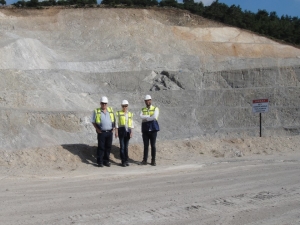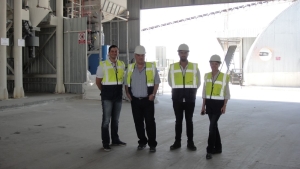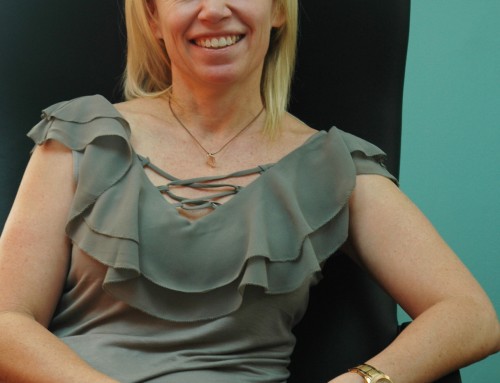Turkey – Business and Pleasure
Anita Mulqueeny and Luis Girao visited Turkey during the week of the 22nd to the 26th of June and were hosted by 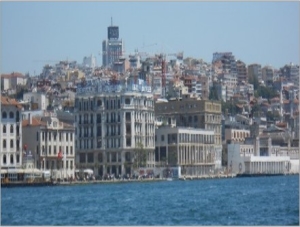 the IPM group of companies during their visit. Amongst other businesses, IPM are one of the world’s largest suppliers of Perlite ore with an annual production of some 400 000 tons from their quarries not far from Izmir. Izmir is a city on Turkey’s Aegean coast. It was known as Smyrna in antiquity, was conquered by Alexander the Great and the Ottoman Empire, and retains landmarks from its long, rich history.
the IPM group of companies during their visit. Amongst other businesses, IPM are one of the world’s largest suppliers of Perlite ore with an annual production of some 400 000 tons from their quarries not far from Izmir. Izmir is a city on Turkey’s Aegean coast. It was known as Smyrna in antiquity, was conquered by Alexander the Great and the Ottoman Empire, and retains landmarks from its long, rich history.
IPM mines fourteen quarries to produce perlite ore that is specifically suited to the end application. Two processing plants dry, crush and grade the material that is supplied worldwide. With continuing investment in 2015, IPM strives to reach a production target of 500 000 tons as well as diversifying into micronized perlite.
IPM supply the Perlite for expansion at Infigro and which is used for insulation, filtration and growth applications. Perlite is an amorphous volcanic glass that has a relatively high water content, typically formed by the hydration of obsidian. It occurs naturally and has the unusual property of greatly expanding when heated sufficiently. It is an industrial mineral and a commercial product useful for its light weight after processing.
Perlite softens and expands when it reaches temperatures of 850–900 °C Water trapped in the structure of the material vaporises and escapes, and this causes the expansion of the material to 7–16 times its original volume. The expanded material is a brilliant white, due to the reflectivity of the trapped bubbles.
The visit was immensely beneficial as it gave a tremendous insight into the Perlite composition of the various quarries which will allow for optimization of this raw material at Infigro.
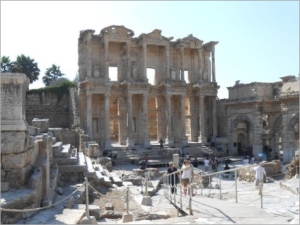
There was time available for sightseeing as IPM kindly transported us to the Roman city of Ephesus. Ephesus is an ancient city in Turkey’s Central Aegean region, near modern-day Selçuk. Its excavated remains reflect centuries of history, from classical Greece to the Roman Empire – when it was the Mediterranean’s main commercial center – to the spread of Christianity. Southwest of Selçuk stands the house where the Virgin Mary is believed to have lived.


